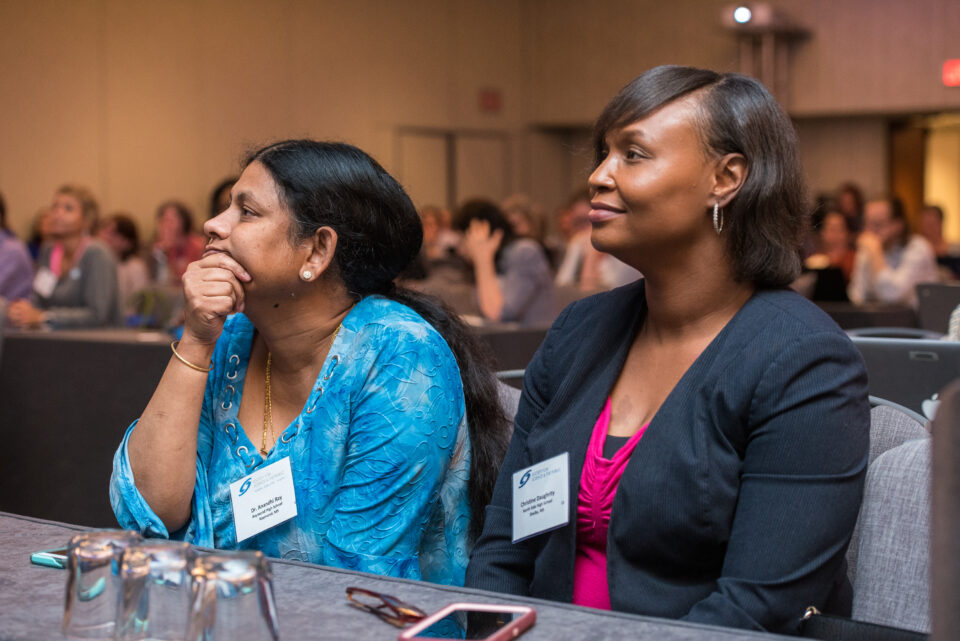

About the High School Research Teachers Conference
Who can attend?
Teachers are eligible to enter the lottery if they meet the following criteria:
- You must be employed full-time by a high school in the United States
- You must teach a STEM course to students in at least one grade between 9th and 12th OR serve in another role enabling you to promote STEM to students in these grades.
- You work directly with students.
- You are able to attend the entire conference.
Preference will be given to teachers who have not attended previous conferences, and to teachers who are the first educator from their school to attend.
How are teachers selected to attend in person?
Twenty-five teachers who have attended in a past year are selected to return as captains, serving as a resource for new attendees. Captains are selected first by geography, one per state, giving priority to states that did not have a captain in the previous year. Consideration is then given to active involvement in the Society’s online educator communities and familiarity with all Society programs.
The remaining 175 teachers are selected via lottery to attend — one third consists of veteran teachers who have significant experience teaching research, one third of teachers who have some experience, and one third of teachers who do not have experience yet but would like to begin supporting students by teaching research. No more than one teacher per school will be selected to attend each year. Schools that have never had an attendee will be given first priority.
When and where does the conference take place?
The conference takes place in Washington, DC in late September / early October of each year.
What costs will be covered by the Society?
The Society is pleased to provide transportation, lodging, and meals for all attendees.
What will happen at the conference?
The conference typically consists of plenary sessions hosted by the Society and a keynote speaker. Attendees are invited to apply to lead breakout sessions with an assigned partner on topics such as:
- Tools and strategies for managing student research projects
- Projects in particular subject areas such as plant science or engineering
- Supporting students in research communication
- Supporting students underrepresented in STEM